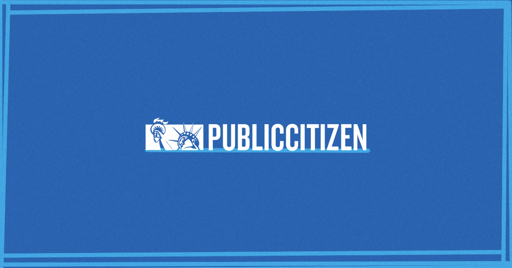Key Findings
Under the Inflation Reduction Act (IRA), the Centers for Medicare and Medicaid Services (CMS) now has the ability to negotiate maximum fair prices of select drugs for Medicare beneficiaries for the first time in the program’s history.[1] With this new authority, CMS can resist the excessively high prices of the pharmaceutical industry and deliver lower out-of-pocket costs for Medicare beneficiaries, many of whom pay hundreds of dollars, if not thousands, for a single essential medication. In negotiating these prices, Public Citizen urges CMS to account for patent abuses by manufacturers that enable price gouging on the drugs selected for Medicare price negotiation in the first place. Many of these patent abuses fall into the category of “evergreening tactics,” which cover patenting trivial and/or obvious modifications of existing medications to lengthen exclusivity on branded medicines.[2] In this report, we analyze the patenting and evergreening abuses on the first 10 drugs selected for Medicare price negotiation.
- Four of the 10 drugs subject to negotiation would likely have faced competition before negotiated prices go into effect were it not for evergreening tactics and patent abuses. As a result, Medicare will lose between $4.9 and $5.4 billion in savings that should have accrued from access to competing, lower-cost treatments. These lost savings are nearly as much as what Medicare is expected to save if negotiated prices go into effect on all of the selected drugs in the first year of the program ($6 billion).[3]
- Evergreening practices were prevalent across the drugs selected for price negotiation. Nine out of 10 drugs subject to negotiation show evidence of manufacturers engaging in blatant anticompetitive uses of patents to fend off generic or biosimilar competitors or evergreening abuses representing minor modifications or tweaks that unfairly lengthen monopoly protection on the drugs. Patent protection on the branded drugs could extend well into the 2030s and possibly 2040.
- Manufacturers of Eliquis, Imbruvica, Jardiance, Farxiga, and Entresto obtained patents on obvious or minor variations of earlier patent claims, such as crystalline forms of drug compounds which would be discovered and managed during routine testing that is part of the drug approval process. These patents allow manufacturers to expand or extend monopoly control on these drugs.
- Manufacturers of Januvia, Stelara, Xarelto, Imbruvica, Jardiance, and Farxiga have obtained patents by relying on previously known information that was publicly available or disclosed in prior patents to extend monopoly control on the branded medications. For example, later patents claimed particular salt forms and methods of using drugs (1) disclosed or claimed in earlier patents, or (2) previously disclosed in publicly available summaries of clinical studies conducted using those drugs.
- Manufacturers of Stelara, Enbrel, and Jardiance engaged in blatant anticompetitive uses of patents, such as (1) using recently acquired patents that have nothing to do with producing a branded drug to block competing products, (2) exploiting deceitful licensing arrangements to maintain duplicative protection on branded medicines, and (3) patenting methods of ensuring patient safety and therapeutic efficacy prior to treatment.
The evergreening tactics and patent abuses documented here suggest Congress should advance laws that curtail gaming the patent system to the detriment of U.S. patients. While the Affordable Prescriptions for Patients Act of 2023, passed by the Senate, is a step in the right direction, the PREVAIL Act sponsored by Senators Chris Coons and Thom Tillis could be devastating for patient access by making it harder for generic and biosimilar manufacturers and nonprofit organizations to administratively challenge branded drugmakers’ patent abuses.

